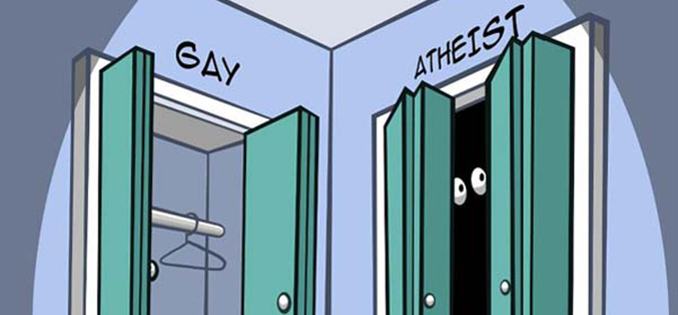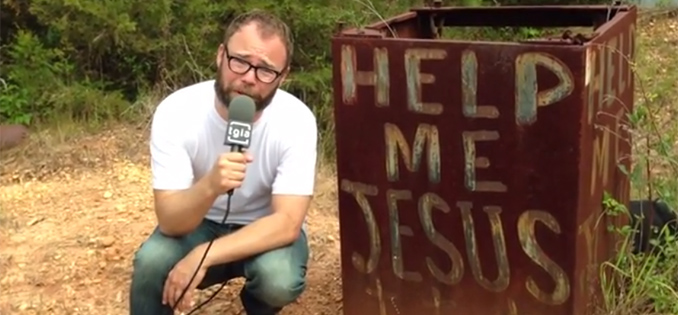I recently saw an accidentally brilliant metaphor by a Christian while reading a thread on a friend’s FB page. The post that launched the thread was a screenshot of this tweet:
At some point we as a nation need to sit down and have a serious chat about toxic Christianity and its relationship to patriarchy, white supremacy, and toxic masculinity.
— Scarlet, Liz Warren's Antifa Buddy🗽🩸🦷🏳️🌈 (@ScarletMagdalen) May 15, 2019
I love the phrase “toxic Christianity,” and was actually pretty excited to see that, rather than a bunch of cheers and jeers from opposing sides, the thread had become a place where thoughtful Christians and respectful secular people were having a frank but productive conversation.
Christians were agreeing with the meme, and saying that patriarchy, white supremacy, and toxic masculinity were actually antithetical to the teachings of Christ. Secular people were arguing that, well… no, they weren’t. It went back and forth, with several Christians arguing about who is and who isn’t a true Scotsman, and a bunch of atheists pointing out what their book says.
Godwin’s law was once again proven true, but it wasn’t a horrible Hitler reference. It was a Christian pointing out how sad it is that people use the good name of Christ to do bad things. In this case, at least the writer was admitting that Hitler was a Christian. I mean, they said a “false Christian”, but whatever. So many Christians refuse to acknowledge Hitler’s Christianity at all, that I’ll take what I can get at this point.
At some point, somebody made the following comment:
“Just as bad cops do not represent the overwhelming number of good ones, the same can be said for Christians and Christianity!”
Well, I thought this was a perfect analogy! But not for the reasons that guy was making it.
The problem with police that is currently being protested isn’t about a few bad apples. It’s about a system that is infected by racism at every level. A system that was purpose-built to favor people of one race over people of other races. It’s such a powerful structure, that even the “good cops” can do nothing to keep even their own policing from participating in racism. Here’s a great explication of how that works.
Time and again, good people of conscience have entered that system, hoping they can break the cycle, only to find the system far too powerful to beat. Their participation, regardless of their intentions, ended up supporting that structural, institutional racism.
Christianity is definitely analogous to that. Sure, there are good, non-misogynist, non-racist, non-homophobic (etc) people within Christianity. But that doesn’t matter. The religion is defined by the structure that holds it up. Many have tried valiantly to reform it, but unfortunately inequality, maltreatment, and hatred are foundational. They’re baked in. You can’t extract them without jettisoning the book the whole thing is based on. You can try to interpret all the stuff you don’t like away, but eventually you have to admit that you’re now beyond interpretation, and are just rejecting your own foundational text.
Christianity is inherently poisonous. All the good intentions in the world can’t redeem the fact that the Bible is a racist, homophobic, misogynistic, genocidal book. In a modern world, where we’ve finally figured out that women and people of color and LGBTQIA folks are all, you know, valid humans… well, that old Bible is doomed to be forever retrograde. And since you can’t really have Christianity without the Bible, I’m afraid Christianity itself is doomed as well.
The only way to be a non-toxic Christian is to get rid of the Christianity.





